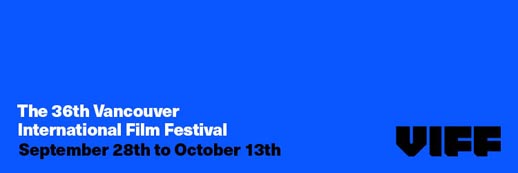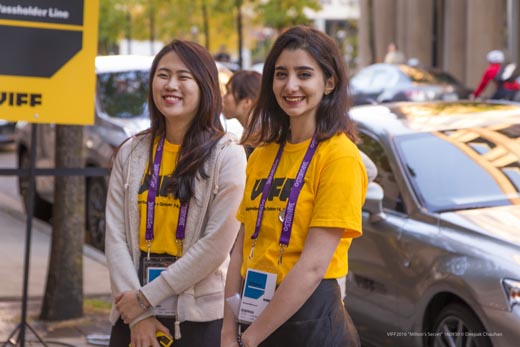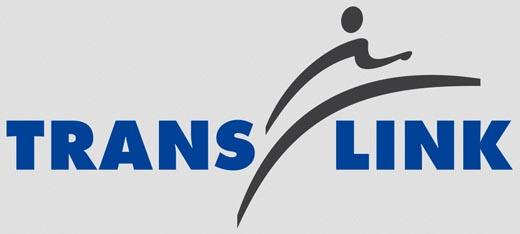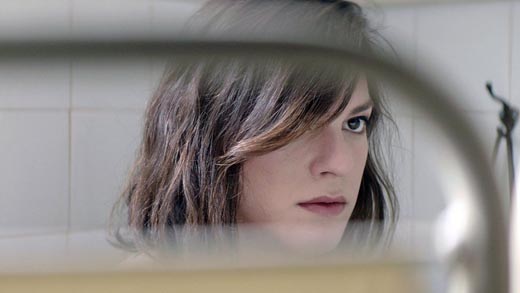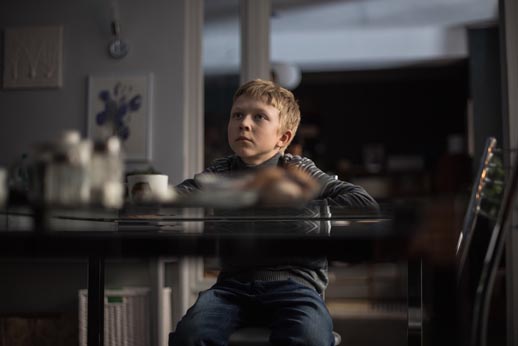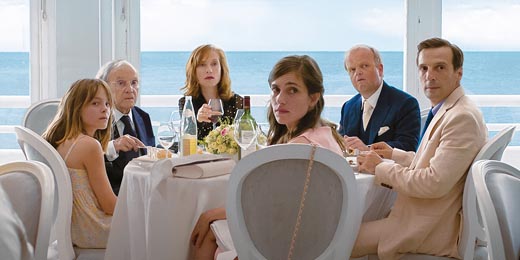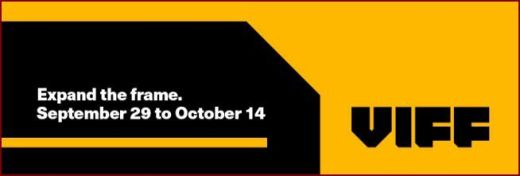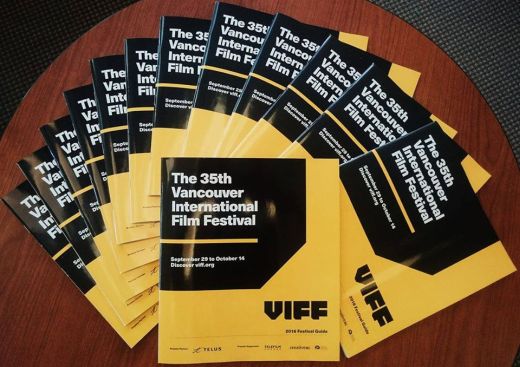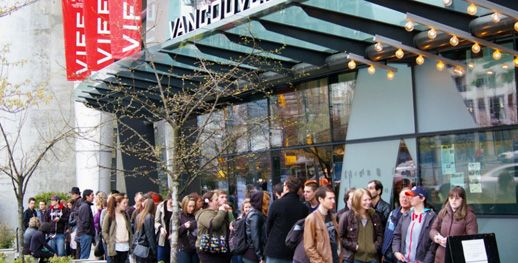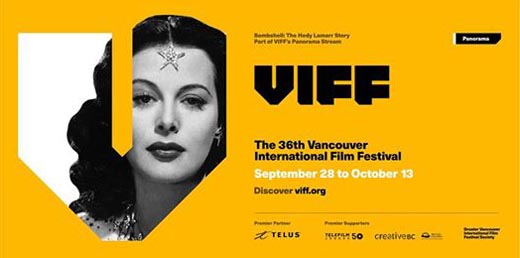
In 2017, the Vancouver International Film Festival will screen 26 award-winning films — Grand Prix, Jury, Audience, Critics and Best Film Awards, along with films boasting Best Director, Actress, Actor and Best Screenplay accolades — arriving on our shores from the Berlin, Tokyo, Melbourne, Seattle, Cannes, Shanghai, Venice, Dubai, Tribeca, Locarno, Rotterdam, Edinburgh, Taipei and Sundance Film Festivals.
If you’re compiling a list of 2017 VIFF must-sees, the award-winning films VanRamblings will write about over the course of the next 12 days must be given your due consideration. We’ll tell you about what awards these films won (and where), present trailers where available, and excerpt reviews from a variety of reliable critics’ sources, ranging from Screen Daily, IndieWire, The Hollywood Reporter and Variety to The Playlist, The Guardian and The Telegraph, among other trusted review sources.
Winner of the prestigious Palme D’or at Cannes 2017, and having just taken TIFF 2017 by storm, according to British film critic Peter Bradshaw at The Guardian, Swedish director Ruben Östlund (Force Majeure) presents a “sprawling and daringly surreal satire that turns a contemporary art museum into a city-state of bizarre and Ballardian strangeness. High wire cinema that sets out to make your jaw drop, The Square succeeds.”
Here are excerpts from reviews of The Square coming out Cannes …
- Jessica Kiang, The Playlist. The Square’s scathing sensibility remains a constant, dark delight, a schadenfreude boomerang set in the rarefied reaches of Sweden’s art world that snip by snip, in scenarios dripping with acidly observed discomfort, clips precisely through the barbed-wire barrier fences of culture, sophistication and socialization that refined middle-class modern humans erect between our public selves and our private, animal natures;
- Todd McCarthy, The Hollywood Reporter. A potent, disturbing work that explores the boundaries of political correctness, artistic liberty and free speech in provocative ways. Östlund digs into the matter, a virtuoso chef driven to try increasingly wild combinations of spices and ingredients, in a tale told through the perspective of a sophisticated, highly educated and instinctively liberal art museum curator, the story unfolding with humour, vivid light, social commentary and nuance, with Swedish dialogue spiked with a good bit of English;
- Rory O’Connor, The Film Stage. An acerbic, sphincter-tightening dark comedy that works as a sort of drawn-out spiritual castration for its über chic Stockholm art curator protagonist, Östlund’s film is about our relationship with art, but it’s also about class, masculinity, and the psychological consequences of inaction (perhaps the key Östlund theme). More specifically it’s about the way we project in modern society and that awful fear we all share that the person we present to the world might not be who we really are.
Perhaps not everyone’s cup o’ tea (but one doesn’t attend VIFF to screen Disneyfied cinema), The Square is Sweden’s Best Foreign Film nominee.
Watch the trailer for Summer 1993, above. See. The Vancouver International Film Festival isn’t always about challenging avant-garde cinema. Winner of Best First Feature at Berlin 17 for tyro Spanish director Carla Simón, Summer 1993 relates the efforts of a six year-old trying to cope with grief, but it is with maturity, empathy and heartfelt emotion that the film conveys the uncertain reality that follows. Screen Daily’s Sarah Ward writes …
- Simón’s début is both tender and determined as it relates the tale of a young orphan trying to fit in with a new family, the film full of affectionate but yearning sentiment, the wise-beyond-her-years protagonist Frida knowing she wants something other than a struggling existence in the shadow of grief, as she tackles her situation with a practical and resilient outlook, peering at everything in sight with a clear but questioning gaze that constantly holds the viewer’s attention. Disarmingly engaging and utterly authentic, Simón’s début feature is loving in appearance as it handles even the most painful of emotions.
Here are two more reviews of Summer 1993 …
- Jay Weissberg, Variety. Cinematographer Santiago Racaj treats his camera as a living, breathing observer, often viewing the world at Frida’s level. More people share the little girl’s frame as the film progresses, though she often still remains a solitary figure, looking out at her new, disorienting rural surroundings with uncertainty. For the viewer though, summer’s verdant abundance and long daylight hours are comforting rather than oppressive, and while the film is set in 1993, paralleling Simón’s own experience, the production design avoids making the period feel too distant.
- Jonathan Holland. The Hollywood Reporter. A delicately crafted and moving filmic memoir by Carla Simón, Summer 1993 draws deeply on personal recollection, every frame of this story about a 6-year old girl sent to live with her uncle and aunt following the death of her parents, the film imparts events with a directness and detail that is underpinned throughout by its performances, particularly those of the children. Childhood memoirs always are under threat from self-indulgence and sentimentality, but 1993 successfully sidesteps both, establishing Summer 1993’s performers as future talents to watch. Palpable with emotion, and filmed with a fly-on-the-wall spontaneity Summer 1993 offers honest, authentic and captivating cinema from beginning to end, in a terrific, soulful feature début for Catalan director Simón.
This sleeper hit at Berlin is unlikely to return to our shores. Either you see it at VIFF 2017, or you risk missing Summer 1993 altogether.
Winner of Best Fiction Feature at the Dubai Film Festival, Kurdish director Hussein Hassan’s Reşeba: The Dark Wind also closed out the 21st Busan Film Festival with his ambitious film about the 2014 Yazidi genocide in Iraqi Kurdistan. Elizabeth Kerr in The Hollywood Reporter writes …
The Yazidi, an ethnically Kurdish religious community with roots dating back to Mesopotamia, are one of Iraq’s most culturally distinct communities. As such, they are also considered devil worshippers by ISIS, which commenced a brutal campaign to eliminate them in 2014. The story starts in the Shingal region, with the happy engagement of Yazidi soldier Reko (director-actor Rekesh Shabaz) and Pero (Diman Zandi, luminous), a union blessed by both families.
The relative tranquility of the village is shattered when ISIS troops swoop in one day, razing the town to the ground, shooting resistant men, burning symbols of culture and raising an Islamic State flag in place of the Kurdish one. During the firefight, Pero hides with several other women, but they are found by ISIS and promptly taken from their home and trafficked. Shabaz infuses Reko with a determined gait and thousand-yard stare that masks inner conflict, but it’s Zandi — in her quietest moments — that makes the horrors of war most vivid. Filled with agony and dread, Reşeba: The Dark Wind is harrowing yet redemptive filmmaking.
Fionnuala Halligan, Chief Film Critic for Screen Daily concludes her review, writing …
Pero is lost in the mayhem, captured and sold in a street market; Reko, who escapes to the camp, pursues her with a quiet determination. The rescue of the traumatized Pero, movingly played by Zandi, is not the end of her problems, however, and although the Yazidis have “forgiven” the 5,000-odd captured women of their tribe, not all of the community elders fall into line. “They abuse and rape our women and sell them back to us,” comments one tribesman. “They are more dead than alive.”
Hassan and cinematographer Touraj Aslani favour wide shots of the Iraqi landscape and the camps which the Yazidis now call home, and begin to look more permanent throughout the film. This is a rare opportunity to see this part of the world framed in a dramatic scenario, and Reşeba: The Dark Wind is quietly authentic throughout, with Hassan restricting even the music to let his sad love story express the emotions of this desolated community.
Full VanRamblings coverage of VIFF 2017 is available by clicking here.
